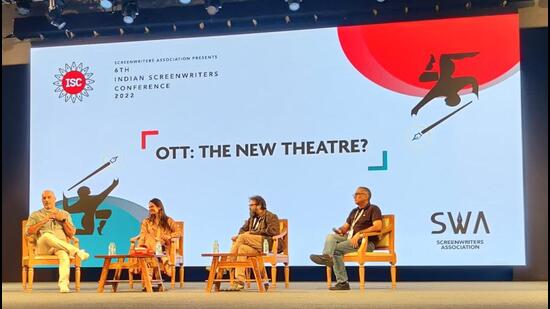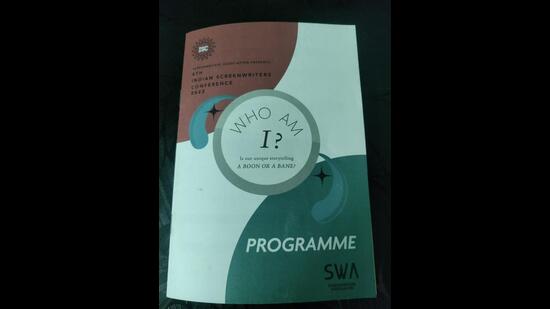Mani Ratnam: ‘A film writer needs to be a scavenger’
The 6th Indian Screenwriters Conference presented masterclasses on writing for film and web series, sessions on lyric writing, and opportunities to network
The 6th Indian Screenwriters Conference was held from November 10 to 12 at the St Andrew’s Auditorium in Bandra, Mumbai. In attendance were members of the Sceenwriters’ Association (SWA) and a number of college students who perhaps aspire to become writers themselves. Those who didn’t have any such ambitions were there to listen to distinguished speakers like Sriram Raghavan and Mani Ratnam, who was the chief guest.

The first session featured Mani Ratnam in conversation with Anjum Rajabali, who hosted most of the three-day conference with linguistic grace. “A film writer needs to be a scavenger, who acquires and adapts material from his life experiences as well as from the experiences of other people he meets,” Ratnam said revealing that the idea for Roja came from the pleading letter written by the wife of K Doraiswamy, an IOC (Indian Oil Corporation) executive, to the Kashmiri militants who kidnapped him. Apart from its riveting storyline, Roja was particularly memorable for the music provided by the young AR Rahman. Mani Ratnam’s films are known to use music in a way that moves the storyline forward. “The use of music makes Indian cinema unique and on several occasions, I have used it to communicate what cannot be written or said in dialogue,” he said pointing out that the song Dil Hai Chhota Sa worked to introduce the character of Roja and her state of mind before the central disatrous incident takes place in the screenplay.
The highlights of the conference included masterclasses on movies and web series. Much like the man himself, Sriram Raghavan’s Movies Masterclass, which focused on his process and the making of films like Ek Hasina Thi, Johnny Gaddar, Badlapur and Andhadhun, was marked by clarity, knowledge of craft, and a deep understanding of cinema.
The web series masterclass conducted by Raj and DK, creators of Family Man focussed on character arcs and ways of pitching show ideas. “Humour is the best way to deliver a moment and hold the audience’s interest,” DK said.

In the session titled OTT the new Theatre?, panelists Nimisha Pandey, content head Zee 5, Deepak Sehgal, business head, Applause Entertainment, producers of Scam 92 and Criminal Justice, and writer-director Nikhil Advani discussed show budgets and how things need to be shot differently for people watching content on phones. Other sessions on lyric writing, pan-India storytelling, and commercial vs independent cinema were equally interesting.
While a screenwriter’s conference is a great networking opportunity, it also educates writers about the practicalities of the business. Even just listening to industry stalwarts talk is a learning experience for young writers. However, if you were expecting this three-day event to provide tips on breaking into the clique-driven world of Bollywood or on successfully pushing an original script, you would have been disappointed. Expecting a conference to help sort out the real struggles of a writer’s life is like expecting the world to be an equal place – it’s probably not going to happen.
Could attending the conference transform a writer’s life? I am not sure. But then, that wasn’t the event’s stated objective. In the end, I’d say anyone interested in screenwriting would have gained valuable insights into the craft and into the way the film industry functions. The samosas were not bad either.
Mihir Chitre is the author of two books of poetry, ‘School of Age’ and ‘Hyphenated’. He is the brain behind the advertising campaigns ‘#LaughAtDeath’ and ‘#HarBhashaEqual’ and has made the short film ‘Hello Brick Road’.
The views expressed are personal
All Access.
One Subscription.
Get 360° coverage—from daily headlines
to 100 year archives.



HT App & Website






